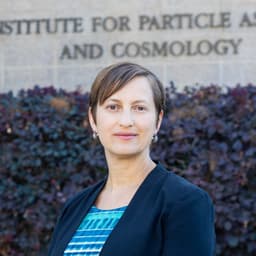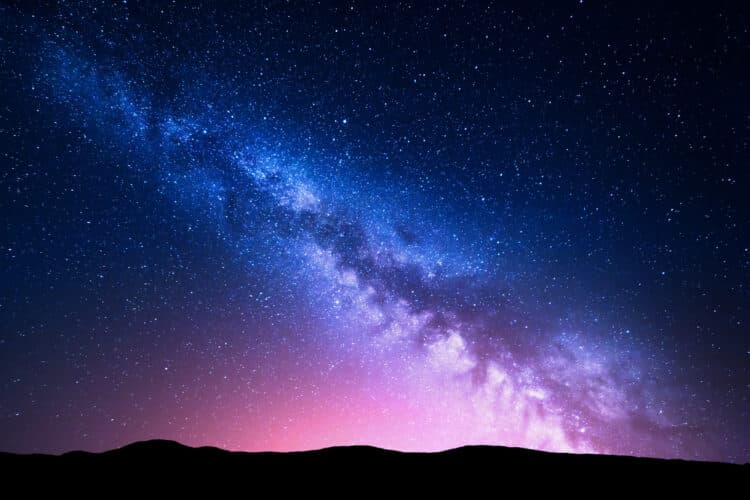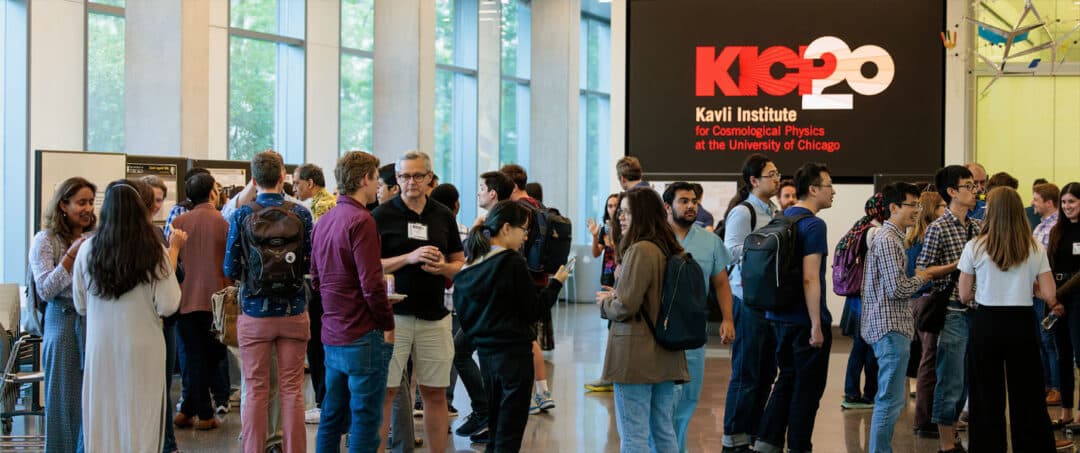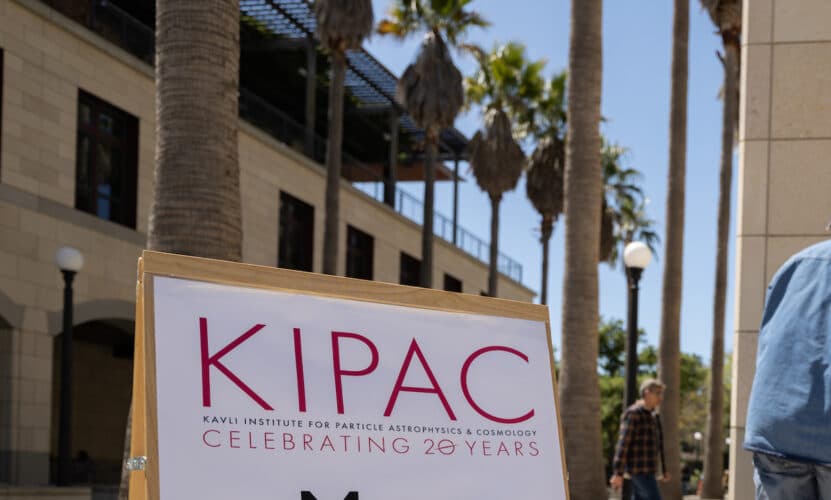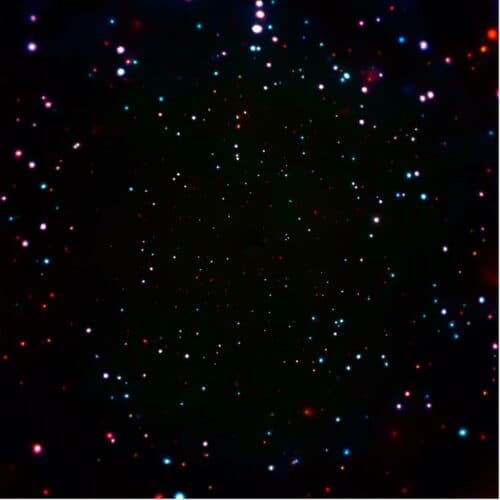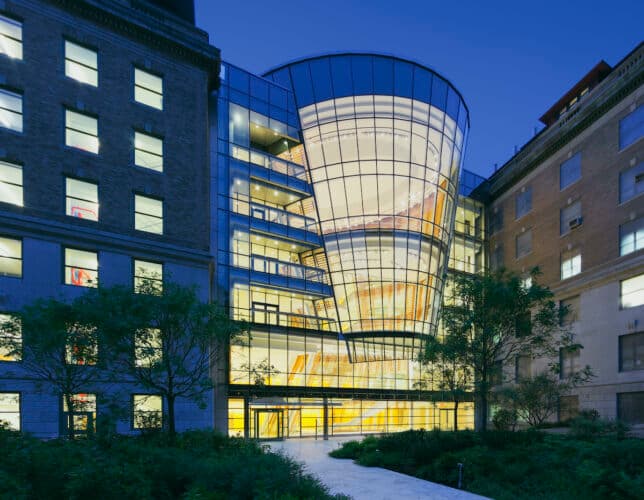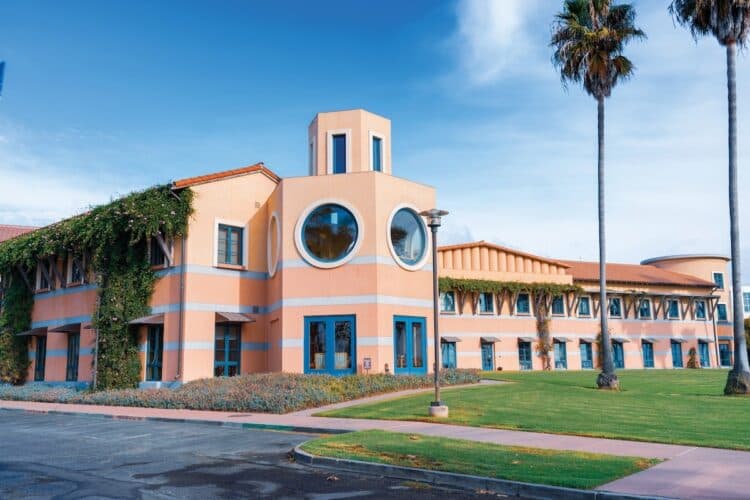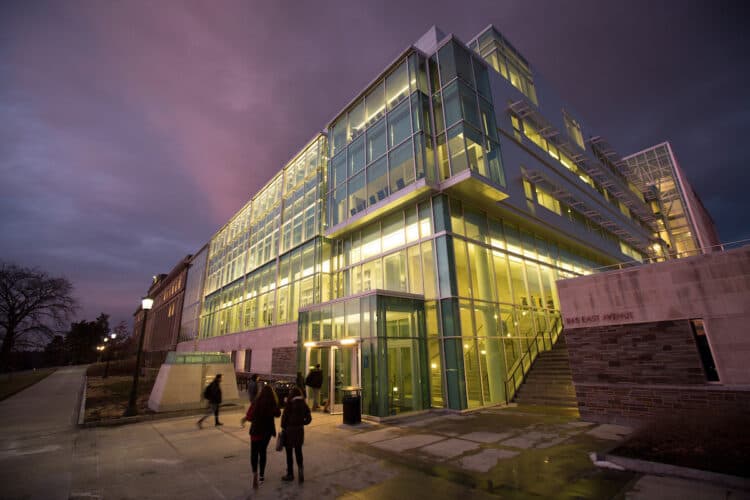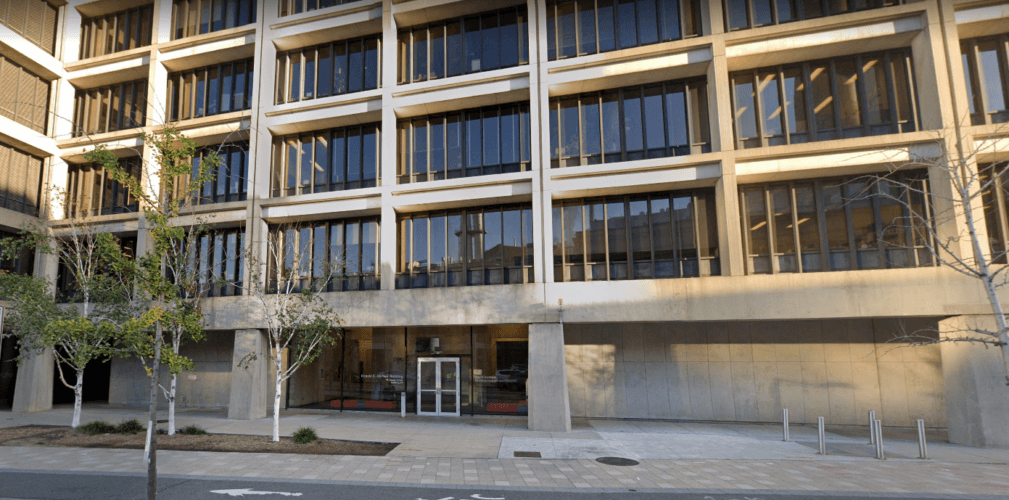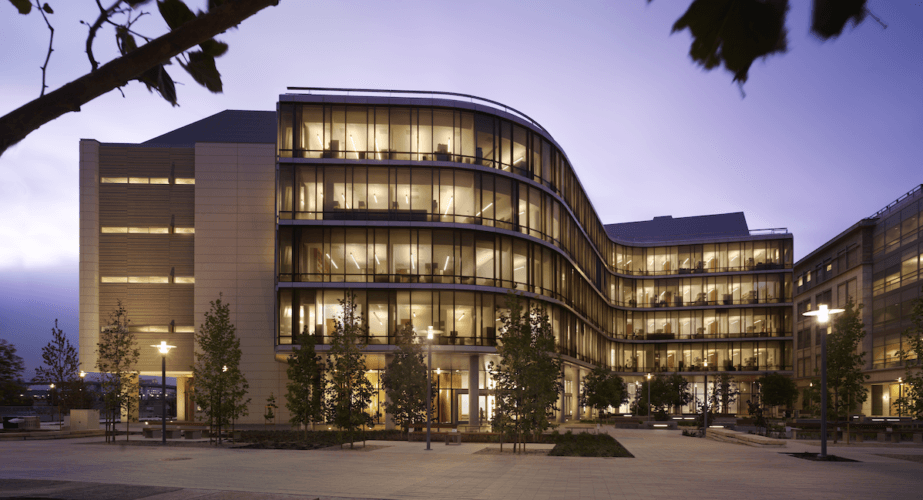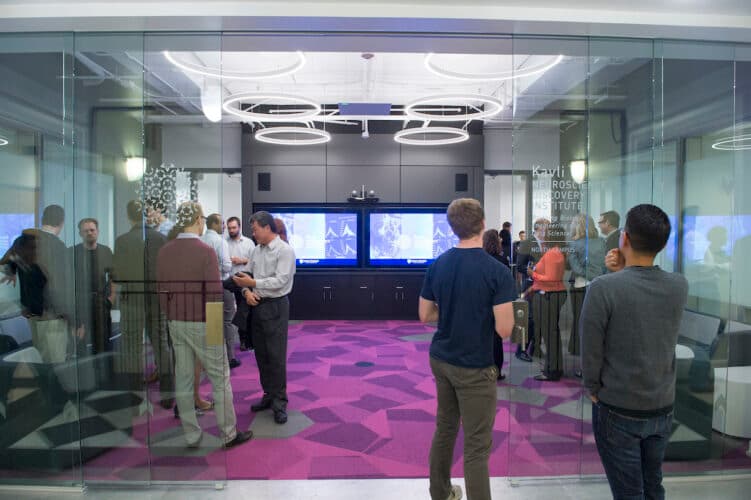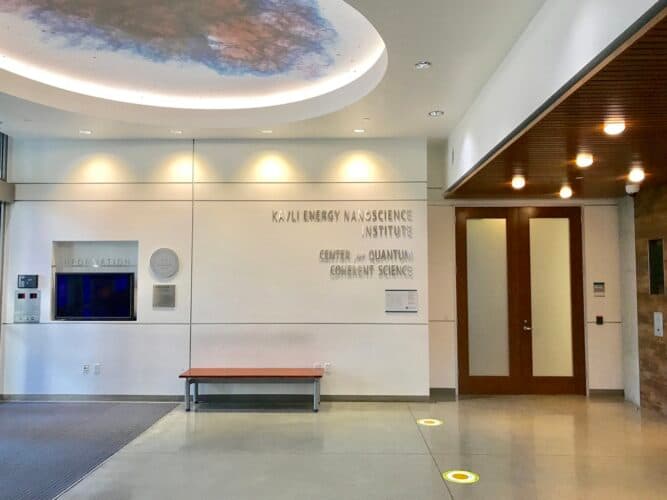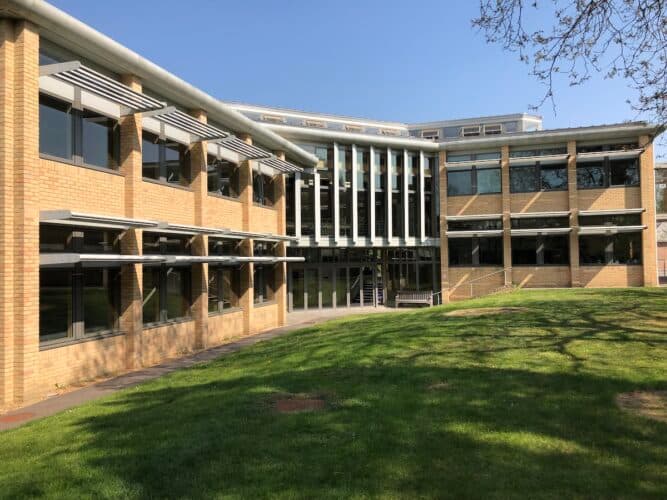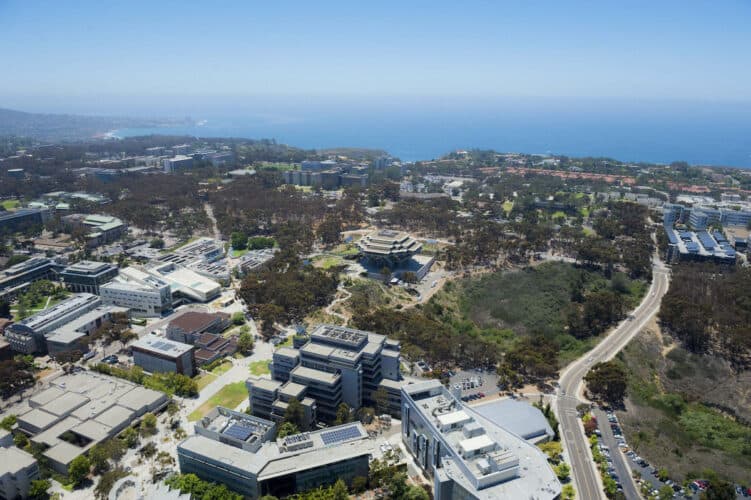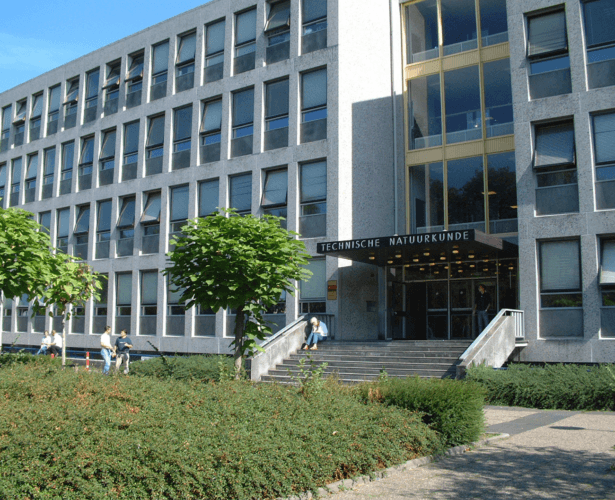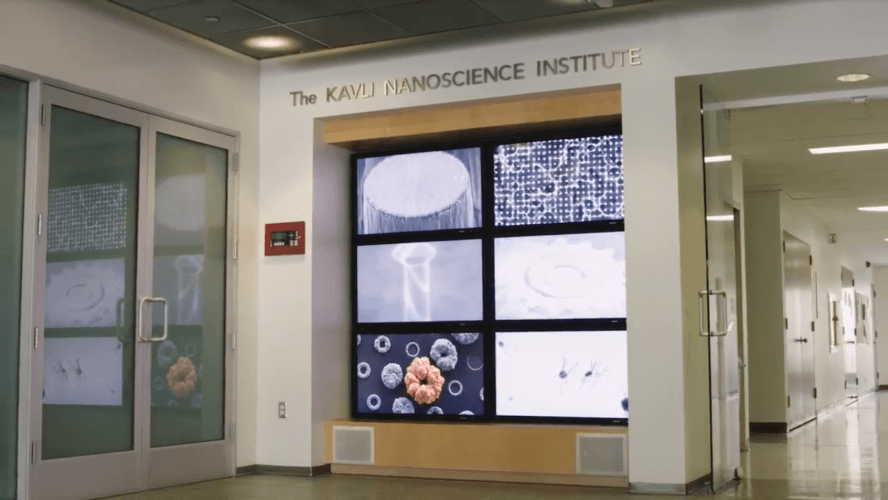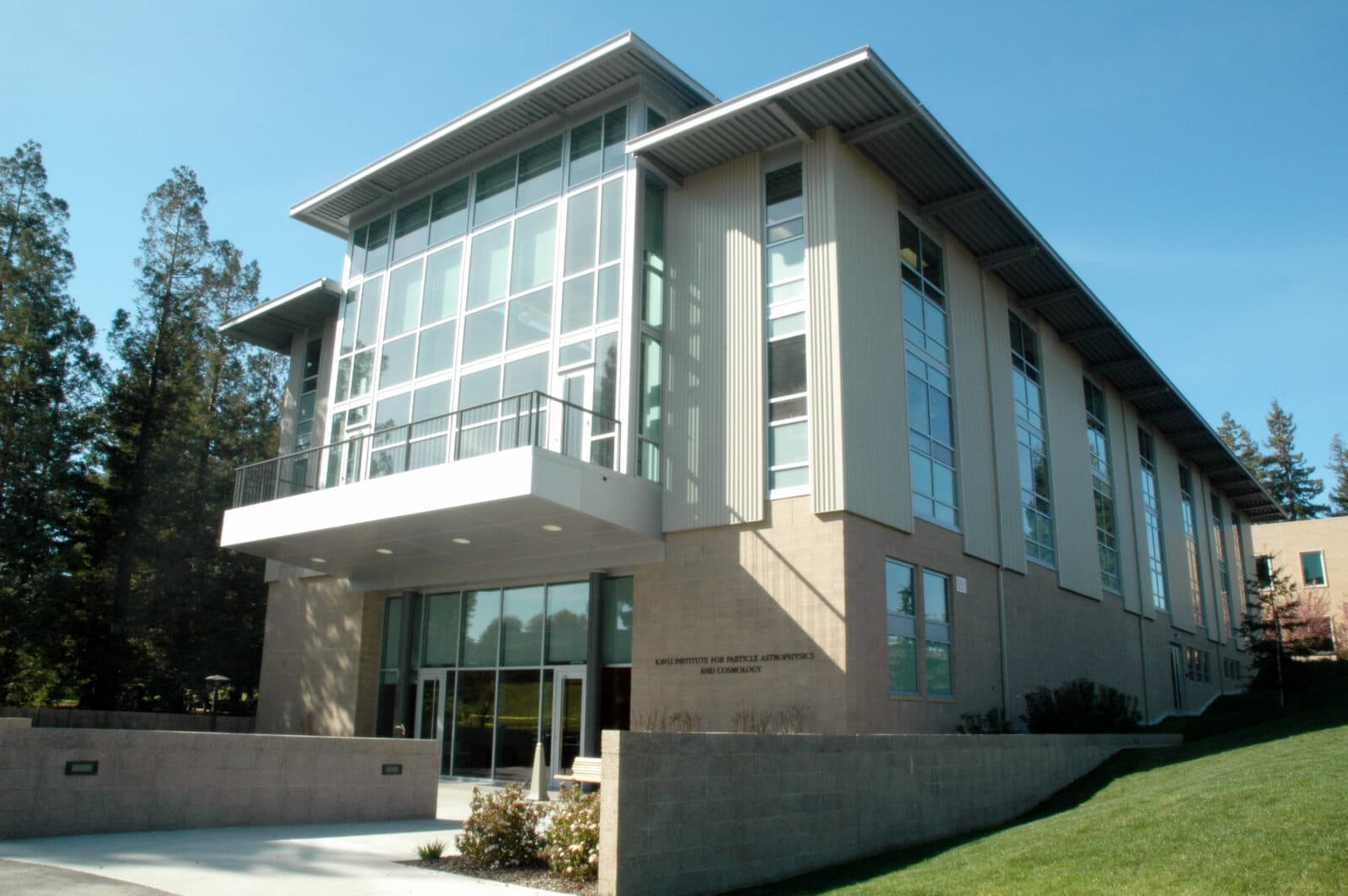
Stanford UniversityKavli Institute for Particle Astrophysics and Cosmology
Exploring nature in all its scales while seeking answers to fundamental questions about the origin, structure and composition of the cosmos
The Kavli Institute for Particle Astrophysics and Cosmology (KIPAC) is an independent laboratory of Stanford University, endowed by The Kavli Foundation and funded additionally by Stanford and the United States Department of Energy. With spaces both on the Stanford campus, including the Fred Kavli Building, and at the SLAC National Accelerator Laboratory, KIPAC includes more than 130 researchers as members, associates or affiliates.
FOUNDED 2003
AREAS OF INQUIRY
- COSMOLOGY: KIPAC scientists study the largest features of the universe, including galaxy clusters and the cosmic microwave background (CMB) radiation left over from the Big Bang. It observes galaxy clusters to gain insights into their origin, the evolution of the universe, and the nature of dark matter and dark energy (see below). KIPAC is involved in efforts to measure the polarization in the CMB and to detect patterns that shed light on the very early “inflationary” stage of the universe.
- HIGH-ENERGY ASTROPHYSICS: KIPAC studies matter in states of extreme compression and energy, such as black holes and pulsars. This is a challenging realm for both theory and observation, where much of the matter is literally invisible and the forces at work may or may not follow the laws that apply elsewhere in the universe.
- DARK MATTER AND DARK ENERGY: Increasingly accurate observations of the universe have led to estimates of its total mass that greatly exceed the objects we can observe, leading to the conclusion that most matter is “dark” – undetectable by any known means. Astronomers also widely believe that a powerful force (“dark energy”) is working against gravity to spur the universe’s expansion. Drawing on both theoretical and experimental expertise, KIPAC is attempting to detect the particle that makes up the unseen dark matter, and to unlock the mystery of dark energy.
Legacy Survey of Space and Time
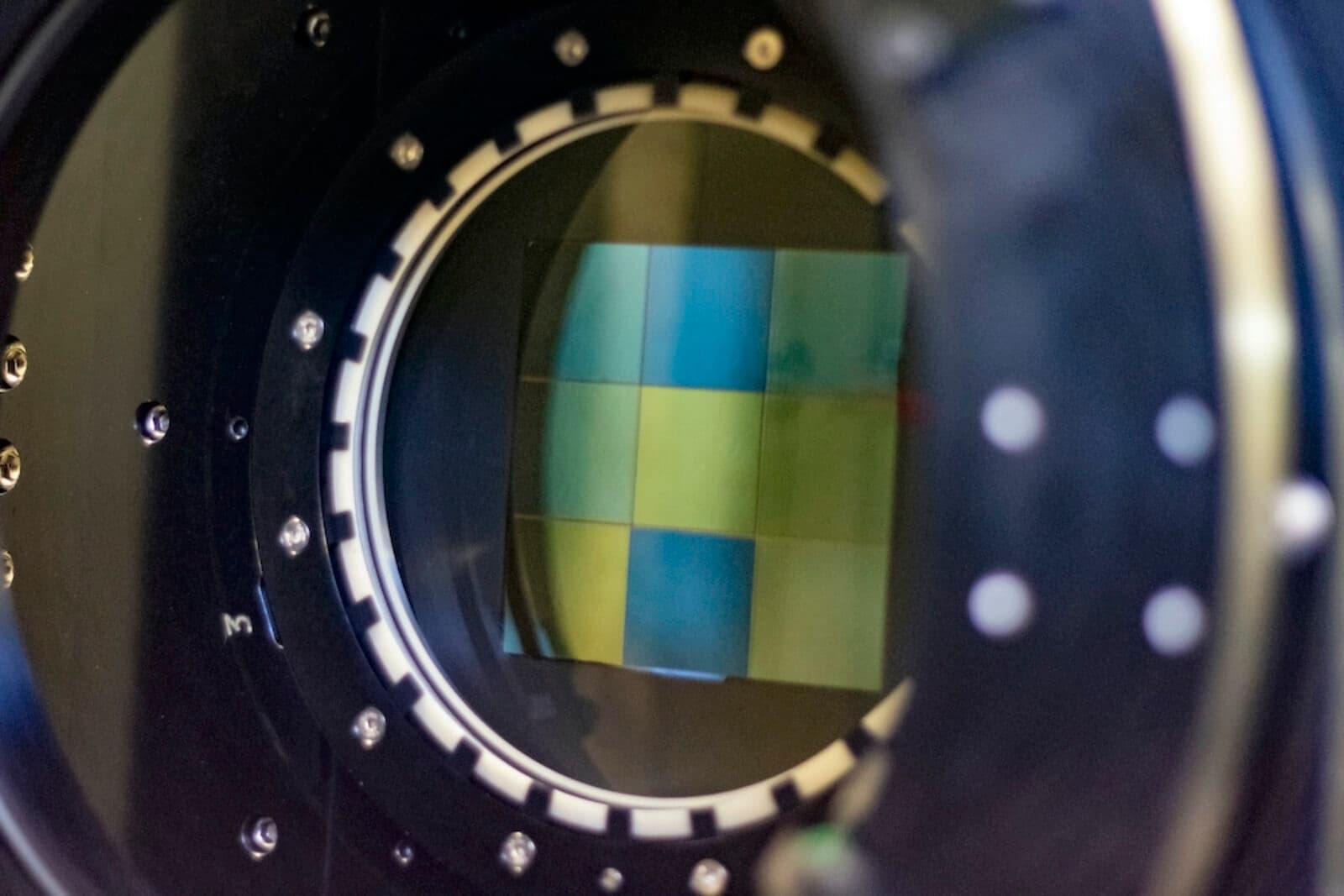
Featured News
Read more about the Kavli Institute for Particle Astrophysics and Cosmology at Stanford University
See all newsWith the Kavli Institute for Cosmological Physics celebrating its 20th anniversary, Abigail Vieregg looks forward to building on the institute’s successes
Jun 14, 2024
Researchers share what they are excited for in the future
Nov 17, 2023
Astrophysics
The Kavli Institute for Particle Astrophysics and Cosmology opens its doors to the public
May 19, 2023
Astrophysics Research Highlights
Research Highlights from Kavli Astrophysics Institutes
Apr 06, 2023
More Institutes
At Kavli Institutes around the world, scientists explore the frontiers of science in the fields of astrophysics, nanoscience, neuroscience and theoretical physics.
See all institutesNanoscience
University of Oxford
Neuroscience
Rockefeller University
Theoretical Physics
University of California, Santa Barbara
Neuroscience
Norwegian University of Science and Technology
Neuroscience
Yale University
Cornell University
Massachusetts Institute of Technology
Astrophysics
University of Chicago
Astrophysics
Peking University-Beijing
Theoretical Physics
University of Chinese Academy of Sciences
Neuroscience
Columbia University
Neuroscience
University of California, San Francisco
Neuroscience
Johns Hopkins University
Nanoscience
University of California, Berkeley
Astrophysics
University of Cambridge
Neuroscience
University of California, San Diego, and the Salk Institute for Biological Studies
Nanoscience
Delft University of Technology, Netherlands
Nanoscience
California Institute of Technology
University of Tokyo
